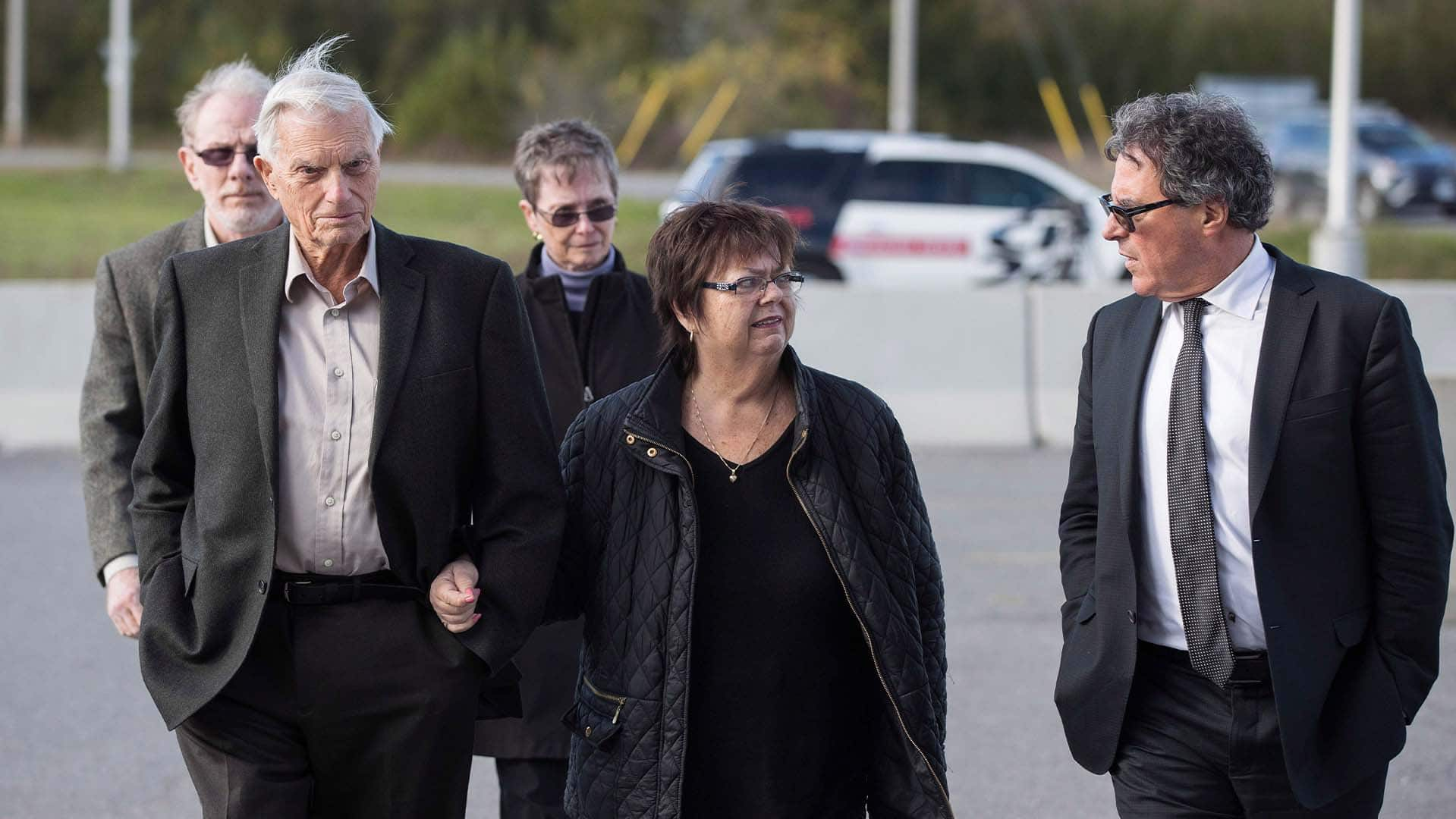Canada's prison investigator, the federal victims' ombudsperson and friends of one of Paul Bernardo's victims are all calling on the federal government to do more to ensure crime victims have the same rights as offenders in the wake of the serial killer and rapist's controversial prison transfer.
Three childhood friends of Kristen French, who was murdered by Bernardo, told the House of Commons standing committee on public safety and security Wednesday night that the corrections system put Bernardo's rights ahead of their own.
Victims and their families were only notified of Bernardo's transfer in May from a maximum- to medium-security prison on the morning it happened.
Tennille Chwalczuk, a friend of French, said Bernardo's transfer filled her with "absolute fear and anguish, and tears and rage."
"We thought, if he stayed in maximum, we might have some sort of peace inside knowing he was where he belongs forever," she said. "And knowing in that moment that it was over ... it was just absolute anguish."
Bernardo is serving a life sentence for kidnapping, torturing and killing French and Leslie Mahaffy in the early 1990s. He was also found guilty of the manslaughter and sexual assault of his 15-year-old sister-in-law, Tammy Homolka.

Bernardo's former wife Karla Homolka served 12 years in prison for her role in his crimes. Bernardo, who is designated as a dangerous offender, has also admitted to sexually assaulting 14 other women.
French's friends say they were forced to relive the trauma of losing her because of Corrections Canada's handling of the transfer.
Demands for change
"One thing was blatantly missing, and that was the careful and real consideration of the impact this transfer would have on these people who have been directly affected by Bernardo's crimes," Laura Murray, one of French's childhood friends, told the committee, which is investigating the transfer.
"We are here to demand the rights of his many victims are considered and respected, now and moving forward."
A review committee appointed by Corrections Canada concluded that while the applicable laws were followed, more could have been done to notify the victims in advance.
Commissioner of Corrections Canada Anne Kelly told the committee on Monday her office seeks a balance between the rights of offenders and victims. She disagrees Bernardo's rights were put first.
But two federal ombudsmen say offenders' rights are upheld more than those of victims.
Ivan Zinger, the federal correctional investigator, pointed out to the committee that his office has a $7.5 million annual budget, while the budget for the office of the ombudsperson for victims of crime, Benjamin Roebuck, is just under $1.5 million.
"There's an imbalance between upholding rights of prisoners and accused versus victims rights," Zinger told CBC News.
Zinger told the committee he wants to see all federal parties endorse a bigger budget, more investigative powers and more independence for Roebuck's office.
In an appearance before the same committee Wednesday night, Roebuck backed Zinger's proposal and said there should be parity between their offices.
"We need supporting legislation and comparable resources," he told MPs. "Currently, the government spends 20 cents on victim complaints for every dollar spent on offender complaints to our respective offices."
Roebuck said that, unlike Zinger, he can't compel evidence from the government and must rely on goodwill "in a lot of cases." He said that leads to reduced transparency.
"We are denied information from federal agencies when we're conducting investigations and we'd like to see that change," Roebuck told CBC News.
Zinger told the committee that a lot of victims' rights aren't really rights at all because victims have no recourse when they're violated.
Roebuck agreed and said the Canadian Victim Bill of Rights "is actually filled with disclaimers of how those rights can't be applied."
"And [it] specifically denies victims of crime the right to challenge in court when their rights haven't been respected, or to appeal based on their rights not being respected," he said.
The government's legislation is also "failing victims of crime" by placing too many restrictions on what information can be released to victims about offenders, Roebuck said.
"It limits information excessively — even upon request — and fails to provide protection and participation in ways that make sense to victims of crime," Roebuck told the committee.
The families of Bernardo's victims are trying to convince the Supreme Court of Canada to give them access to his records so they can prepare "meaningful" victim impact statements, said their lawyer Tim Danson.
For years, the families have been denied copies of documents used during Bernardo's parole hearings due to privacy law.
Roebuck sent a submission to the committee with eight recommendations including the government adopting a "trauma and violence-informed approach" so victims can share their safety concerns without repeatedly having to include traumatic details in victim impact statements.
He also called on the Correctional Service of Canada to speak to victims in advance of prison transfers so they can share any safety concerns. Roebuck said offenders should never be transferred to prisons close to where their victims live without telling them in advance.
Corrections Canada has launched a committee that includes victims of crime. The committee started meeting this month to look for ways to improve services for victims.
Marco Mendicino, who was public safety minister at the time of Bernardo's transfer, also issued a ministerial order requiring that victims be notified before a transfer decision is made.
Friends of one of Bernardo's victims call on Ottawa to do more to uphold victims' rights - CBC.ca
Read More




No comments:
Post a Comment